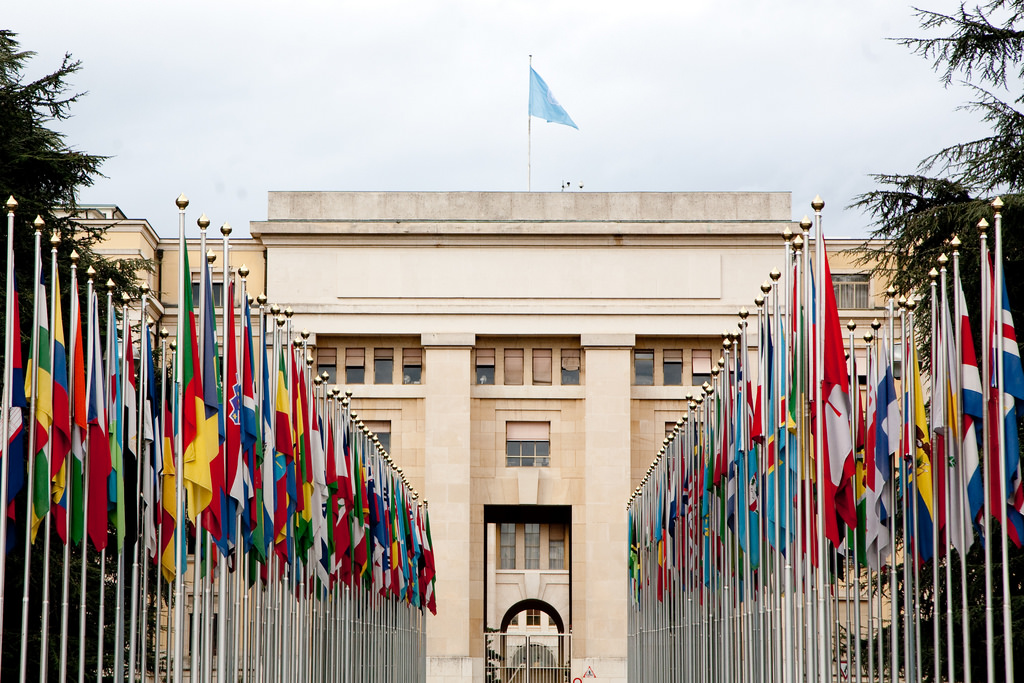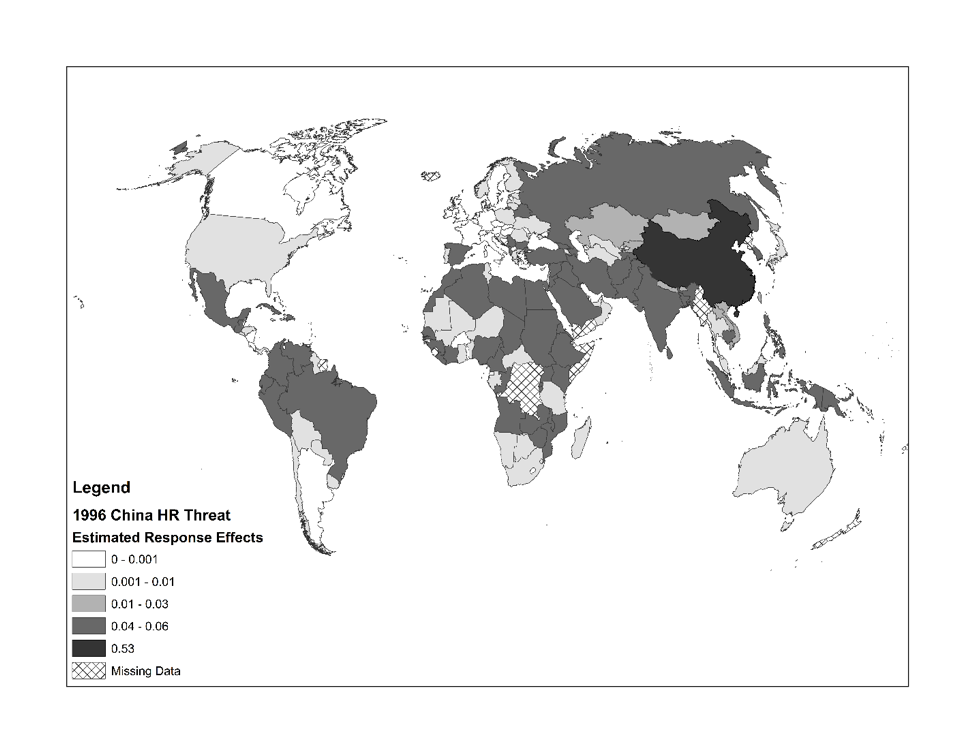By Tricia D. Olsen for Denver Dialogues.
Human rights advocates, observers, and policy leaders have made great strides toward creating a treaty for business and human rights. In October 2018, the UN’s intergovernmental working group shared an initial draft (the “Zero Draft”), which was discussed by over 400 civil society organizations, 94 state representatives, and business leaders in Geneva. Yet, an established body of literature documents the ineffectiveness of treaties, in particular around respect for human rights. They sound like a good idea, there’s plenty of enthusiasm at the outset, but they aren’t great at actually creating change. The lessons of past human rights treaties suggest that the current treaty fever in Geneva and elsewhere is misguided.
Here, I share two lessons from the political science literature that may be disappointing to treaty hopefuls. I then offer some suggestions as to where our efforts might be better spent, if reducing corporate human rights abuses and increasing accountability are goals we’d like to achieve.
Point 1. States Are Generally Willing to Sign Up
Treaties, in general, are agreements between nation-states and are used to establish a broad set of principles relating to a variety of issues that require, or benefit from, collaboration: ending wars or creating peace; protecting the rights of children, intellectual property, or biodiversity; and reducing corruption, terrorism, drug trade and, even, doping.
The variety of this list also illustrates the proliferation of treaties. With regards to human rights, specifically, there are a number of treaties widely adopted by the vast majority of UN member states. These include the Genocide Convention (1948), the Convention on the Elimination of all forms of Racial Discrimination (CERD, 1965), the Convention on the Elimination of all Forms of Discrimination Against Women (CEDAW, 1979), and most notably the Bill of Human Rights, which includes the International Covenant on Civil and Political Rights (ICCPR, 1966) and the International Covenant on Economic, Social and Cultural Rights (ICESCR, 1966). Of course, not all states sign all treaties. Even with some countries opting out, Figure 1 shows that the number of treaties and the states signing them is on a solid upward trajectory.

Point 2. Treaties Don’t Result in Drastic Change
While a treaty on business and human rights would be one of many, most concerning is that a body of research on states’ respect for human rights illustrates that commitment to human rights treaties does not necessarily lead to compliance. Though such treaties are codified in international human rights law, there are limited mechanisms to ensure compliance is achieved—ratification often serves as “a pleasing statement not necessarily intended to have any real effect on outcomes.” Treaties, in general, have no bite.
As a result, state leaders might engage in issue linkage, in which a state joins a particular convention not because of a commitment to that issue, but to signal their policy positions to trading partners. States that abuse human rights use treaties as a signal, albeit a weak one, to opposition leaders that something is being done. For example, repressive states are just as likely to belong to the main international legal treaties outlawing murder, torture, etc. as those governments that generally protect human rights. Similarly, dictatorships that practice torture are more likely to participate in the UN’s Convention Against Torture than those dictatorships that, in general, do not use torture.
Hafner-Burton provides a pithy summary: “Most governments swear to pursue, promote, and protect human rights. They make legally binding promises, which they break when convenient.”
Point 3. A Treaty on Business and Human Rights is Fundamentally about States
That’s really it. Even if the treaty has direct obligations for companies, which it currently does not, the real work depends on states. The treaty would require states to pass laws that require companies to respect human rights. See points 1 and 2 above as to why this is a problem.
Where Do We Go From Here
My current book project, Varieties of Remedy: Seeking Justice for Corporate Human Rights Abuses in Latin America, employs the Corporations and Human Rights Database to question assumptions often found in the business and human rights space. The data, thus far, paint a new picture as to how to best address business conduct and victims’ access to remedy.
First, many scholars and practitioners assume large, multinational corporations are immune from accountability efforts. In the book manuscript, I find that profitability—not foreignness—is king. Judicial accountability for human rights abuses in Latin America is least likely when firms, of any size or origin, are profitable. On the left of Figure 2, we see the negative relationship between firm profitability and the probability of a trail. This effect is even stronger for profitable foreign firms (right of Figure 2) as indicated by the probability those entities will face a civil trial.

Second, the UN Guiding Principles (UNGPs) suggest that non-judicial remedy might be an appealing alternative for companies and victims in countries with weak institutions. Instead, I find that non-judicial remedy is much more likely in those Latin American countries with strong institutions (as measured by Polity 2 and the Freedom from Corruption Index). Non-judicial remedy is not a complement, it’s a substitute.

When victims do have access to remedy—specifically judicial processes—it is, in part, because local NGOs helped elevate victims’ voices. Local NGOs that help advocate for victims or aid in navigating local judicial processes or procedures are fundamental to accessing remedy mechanisms, on average. Victims are more likely to have access to judicial and non-judicial remedy in relatively strong institutional contexts (e.g., robust democratic practices, strong rule of law). The best pathway to improving access to any remedy mechanism is to strengthen democratic institutions, not offer alternatives.
This work is hard. It is also incredibly important. The data are quite clear that a domestic focus is needed. Strong domestic institutions are more likely to deter future would-be abusers. Learning what domestic actors need and how to strengthen domestic institutions presents a more fruitful, if varied, path to reducing corporate human rights abuses. Let’s not add another treaty to the pile.







